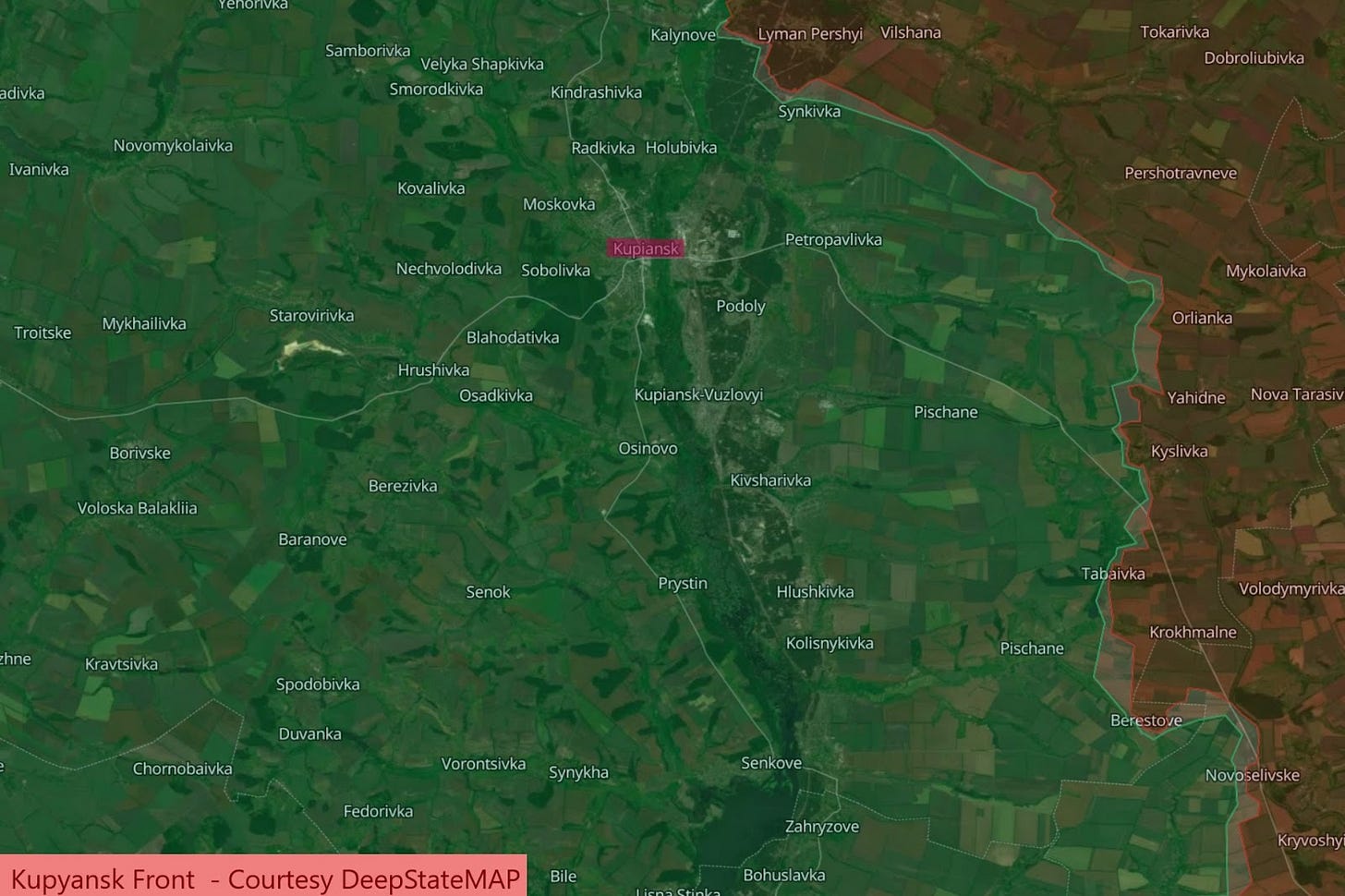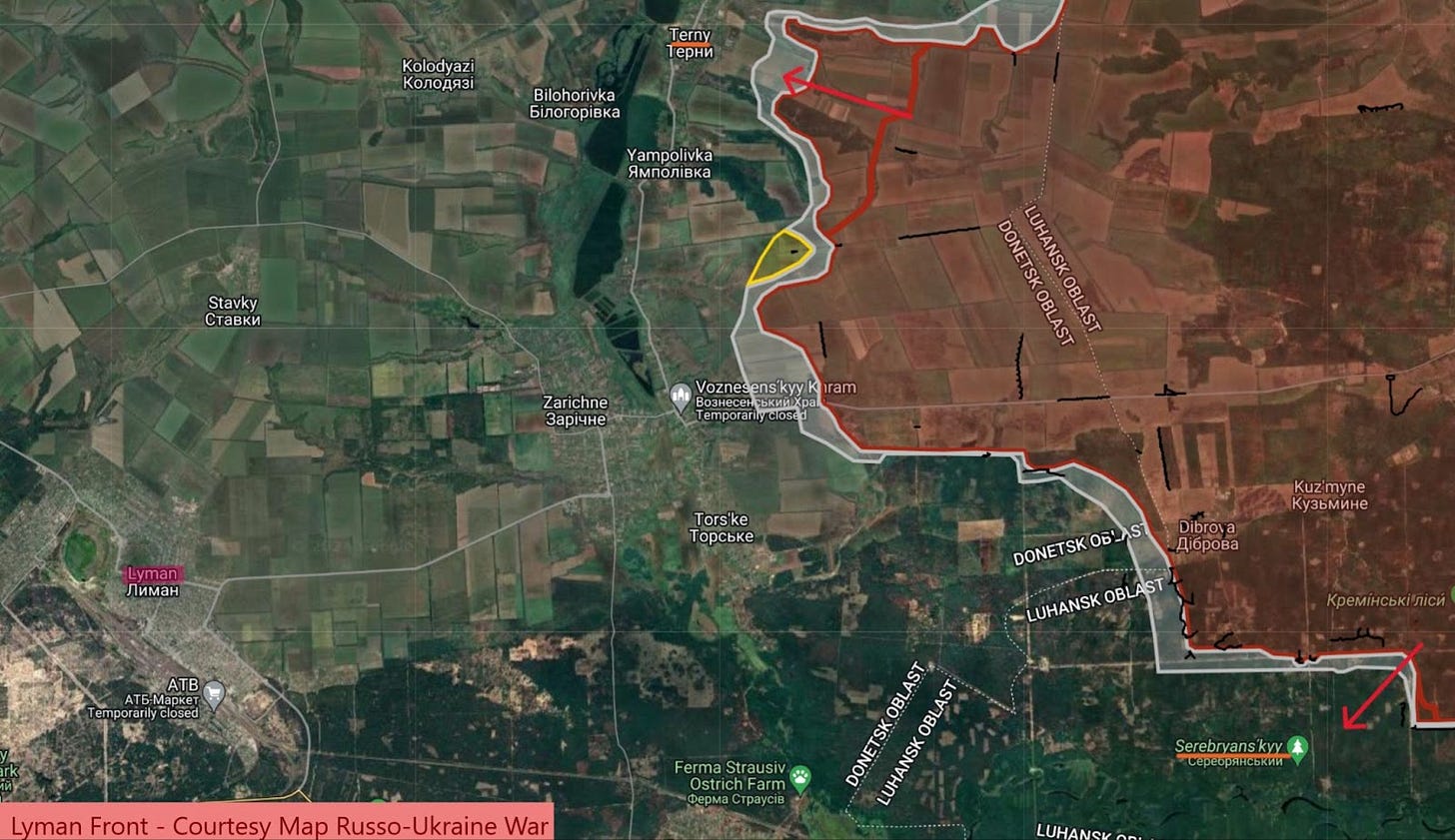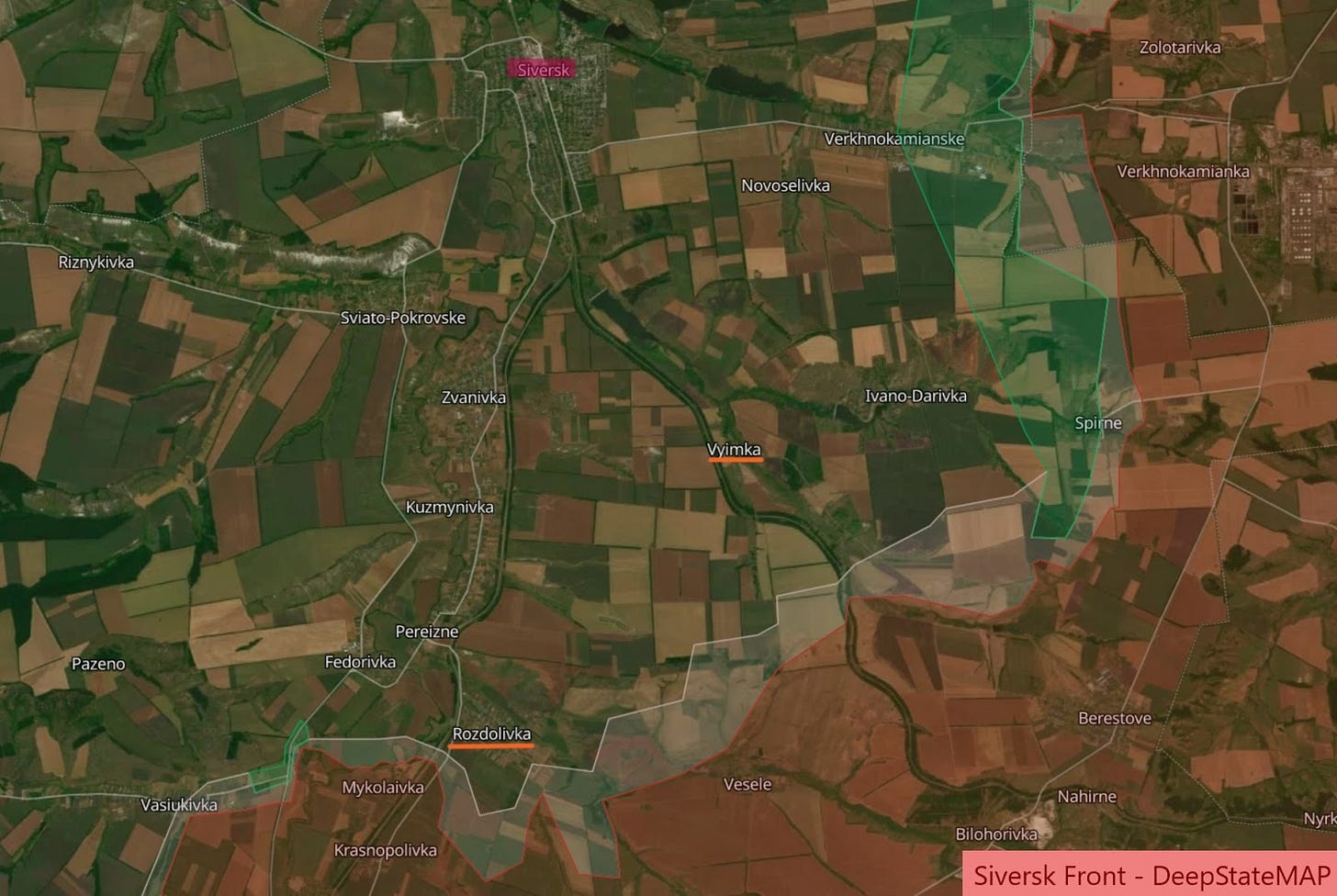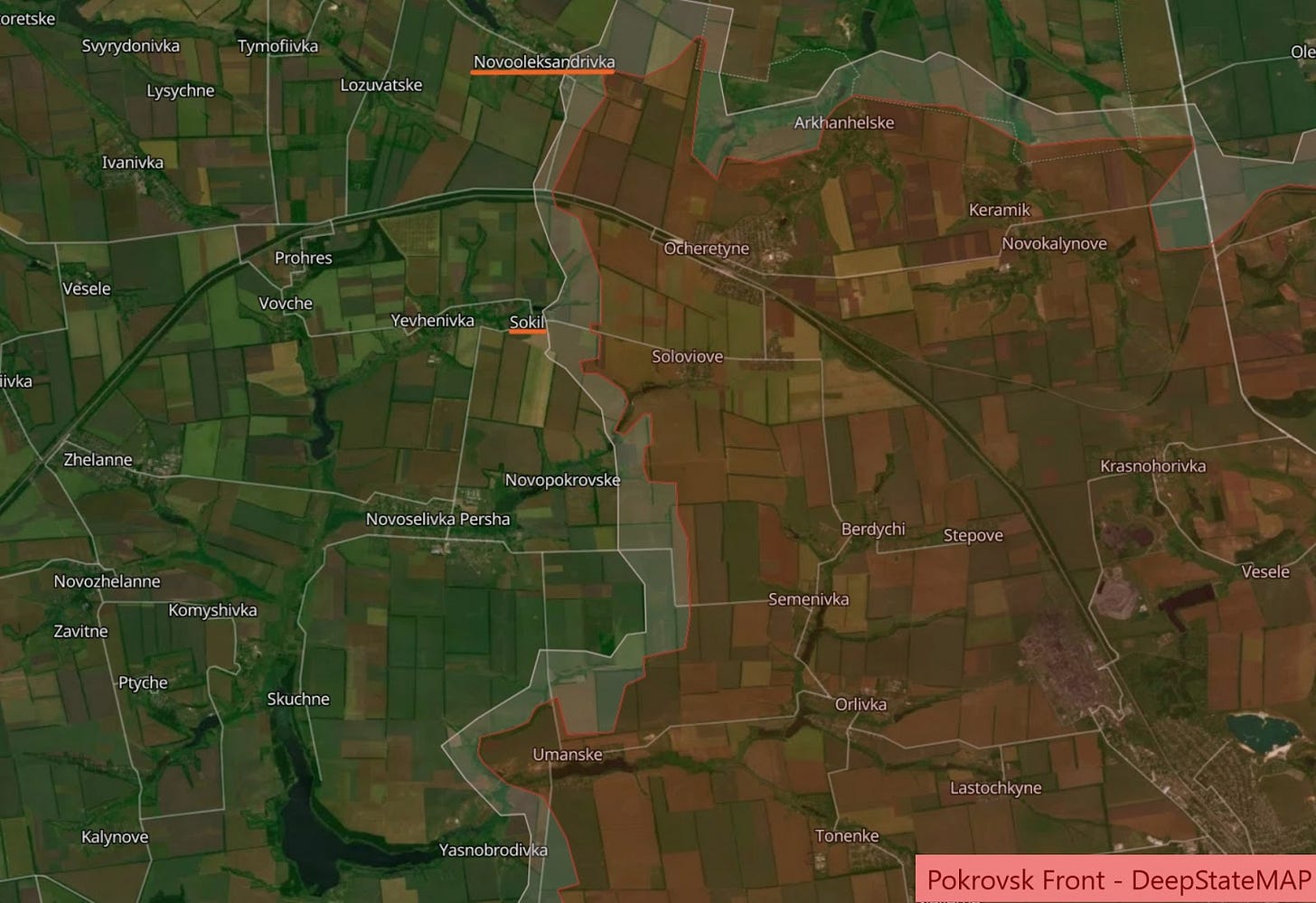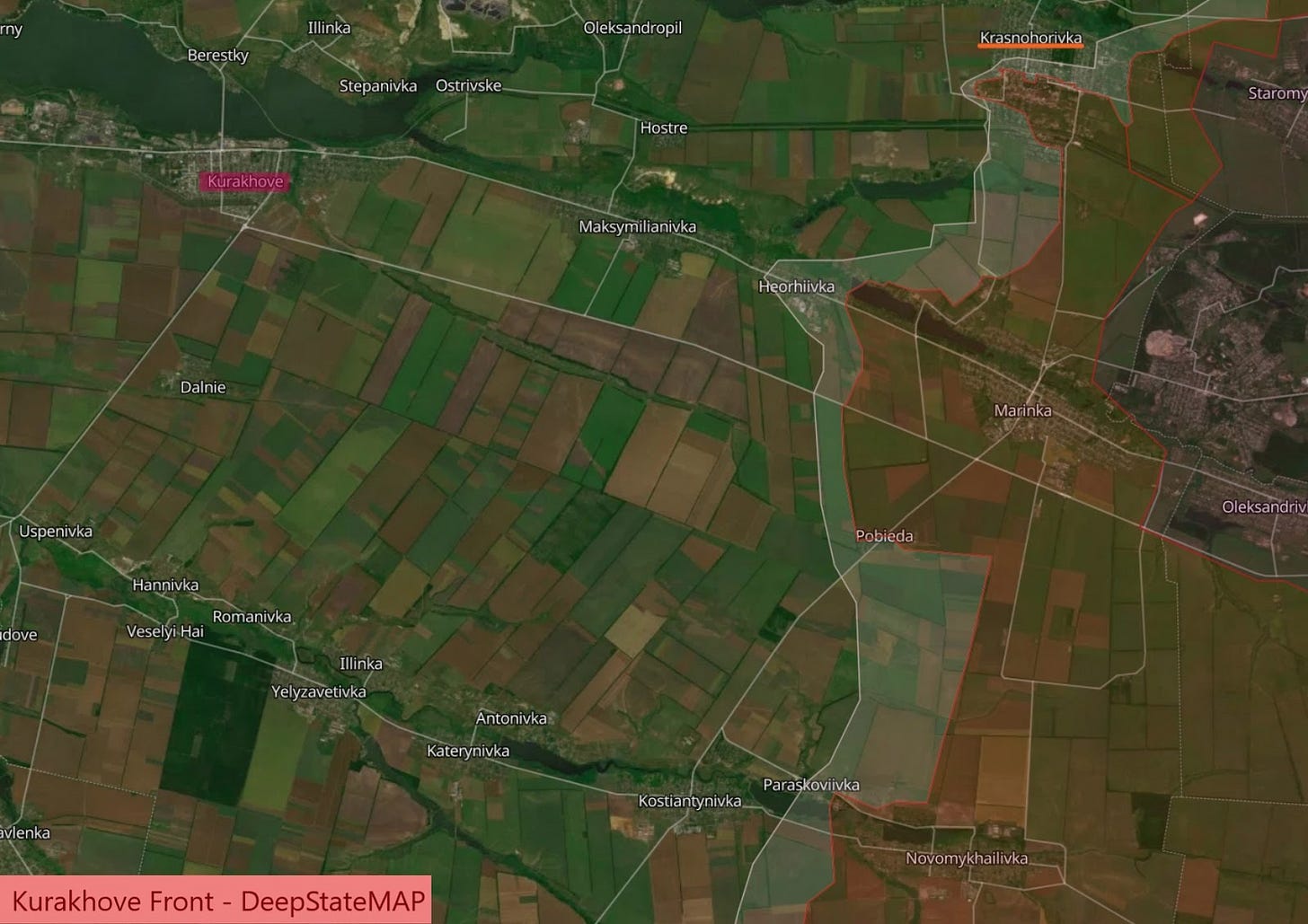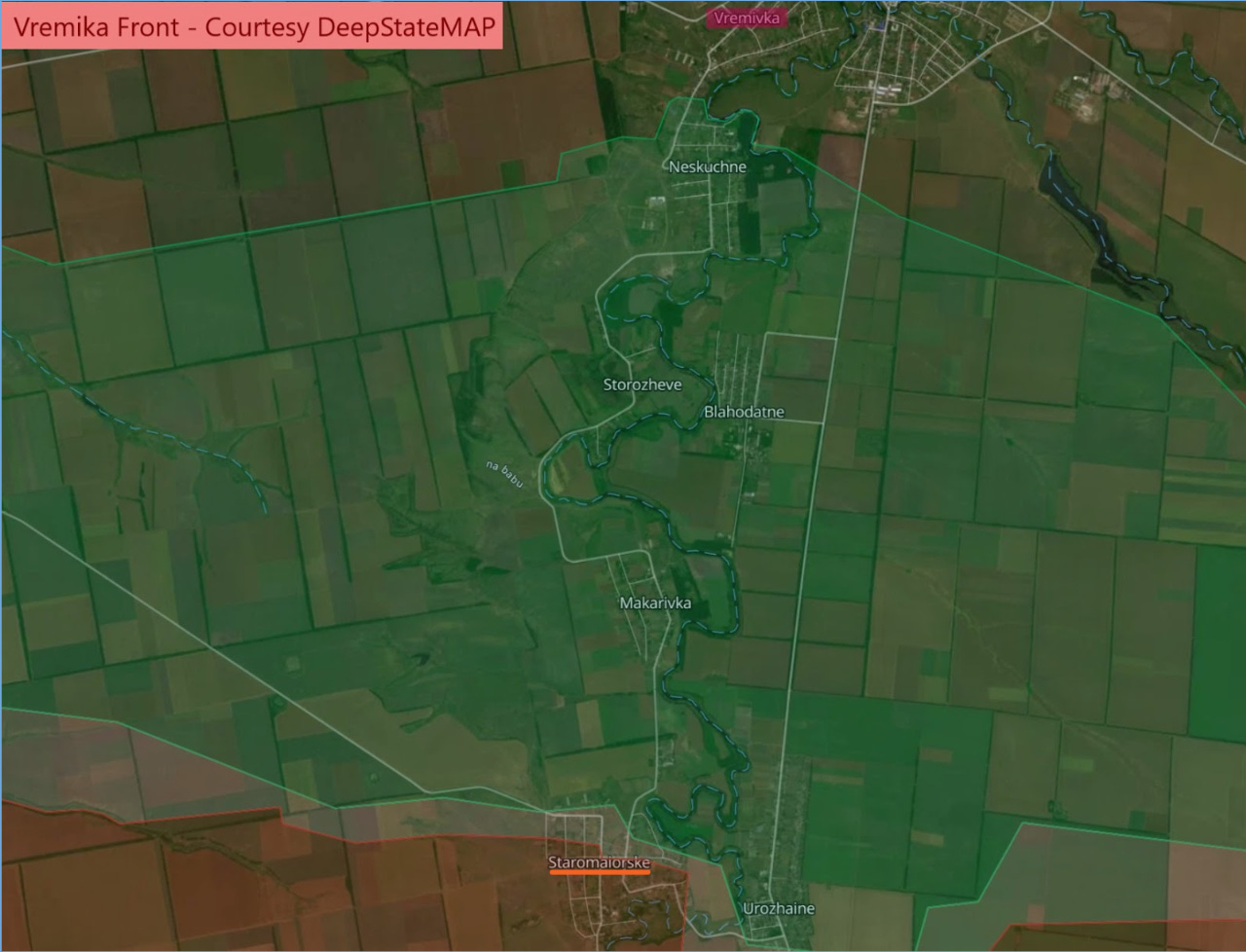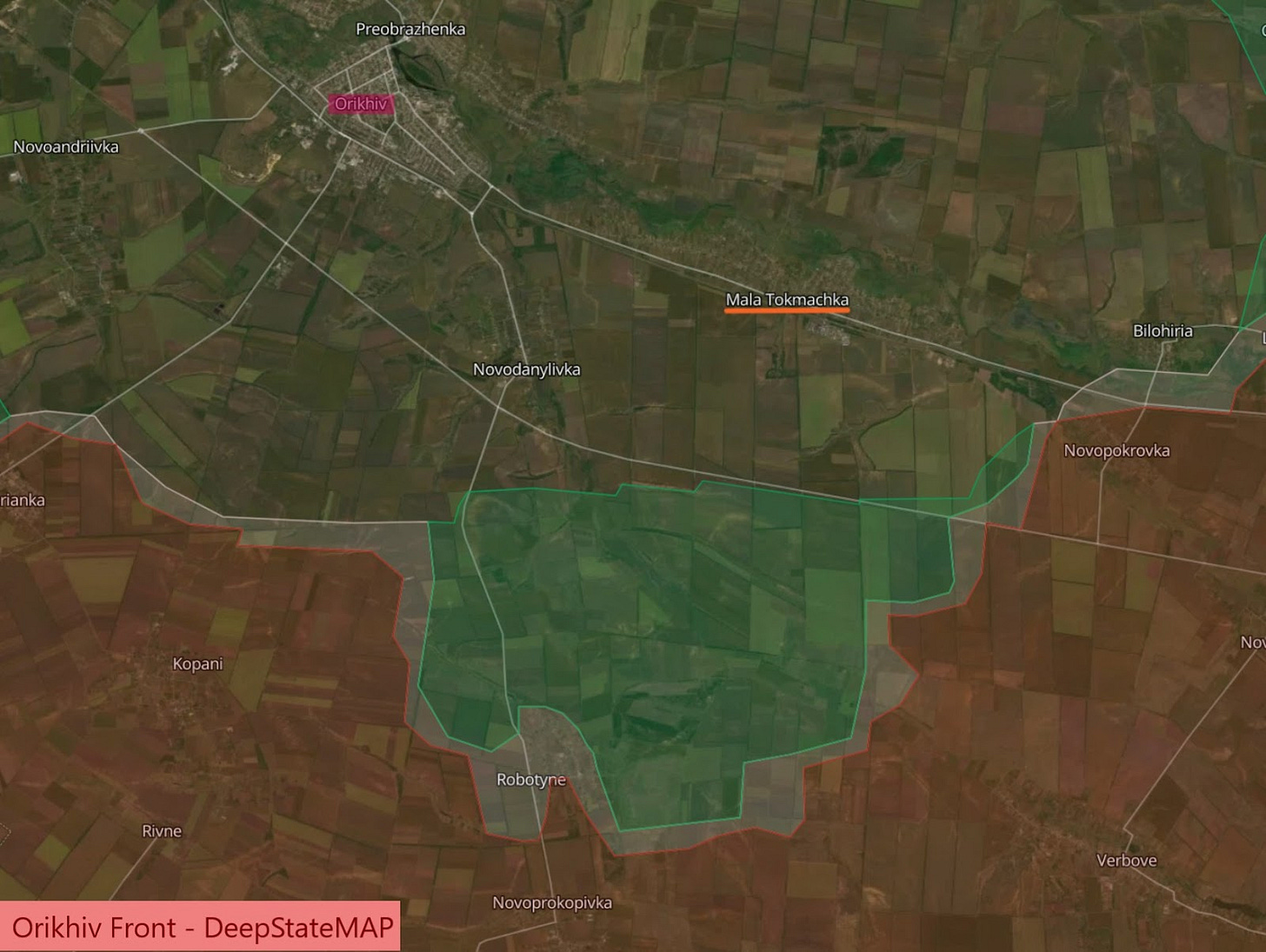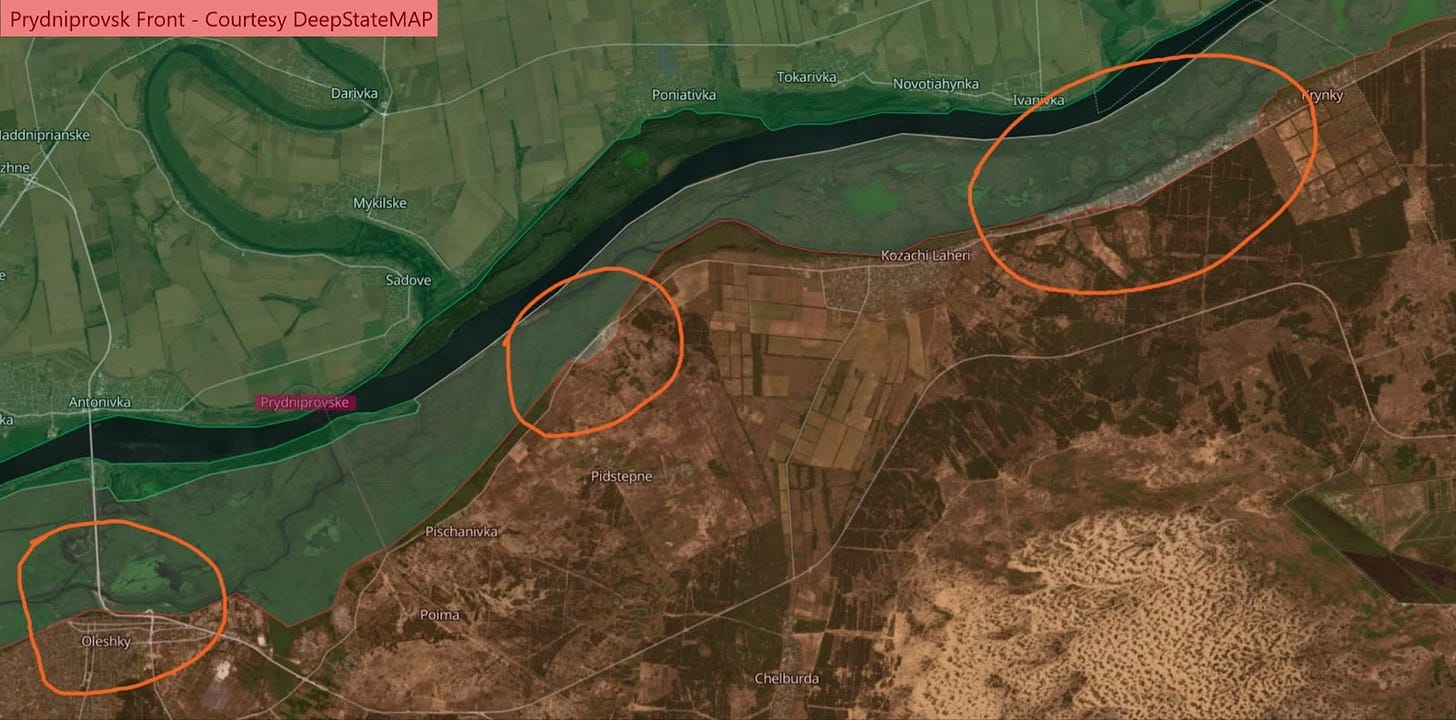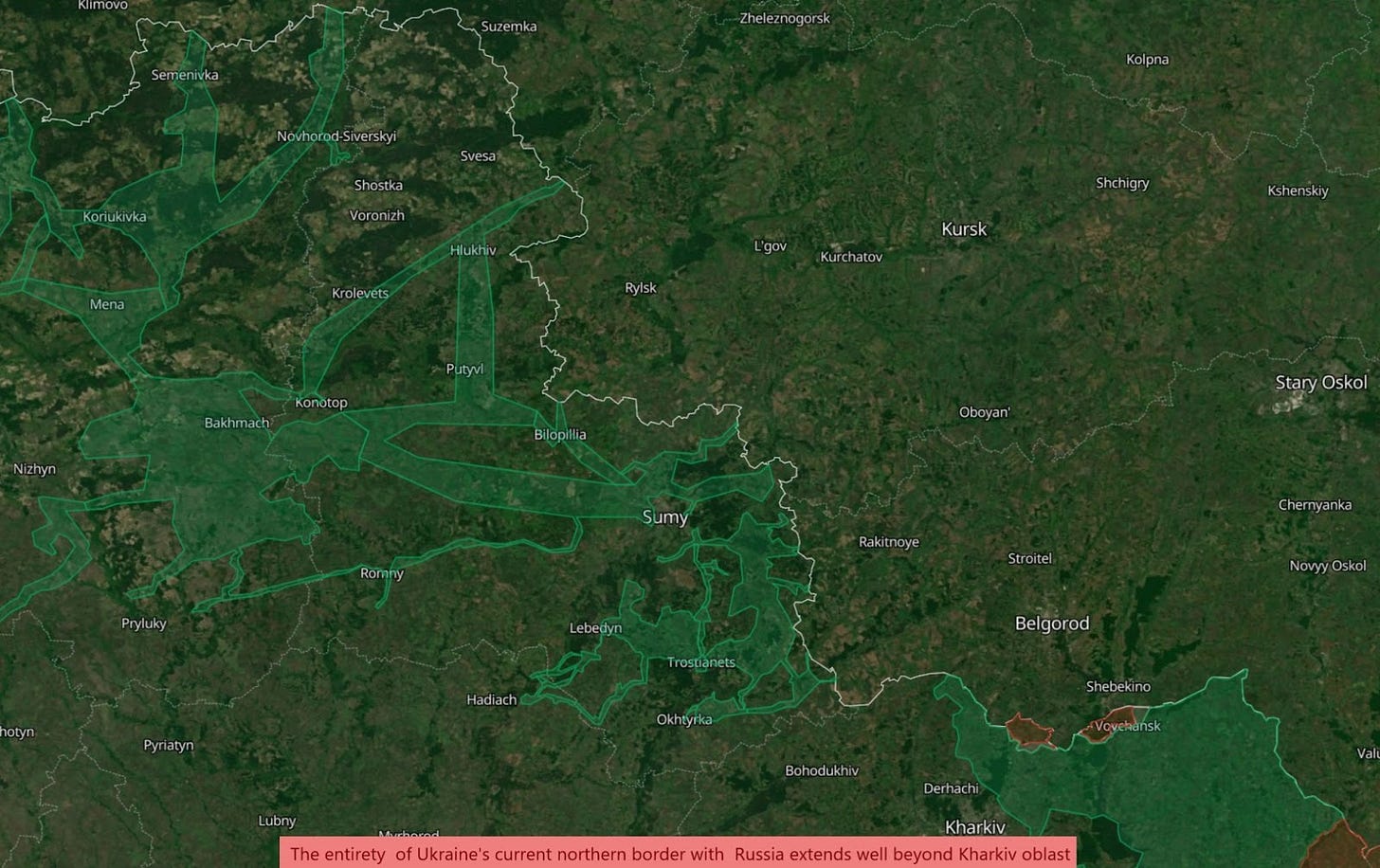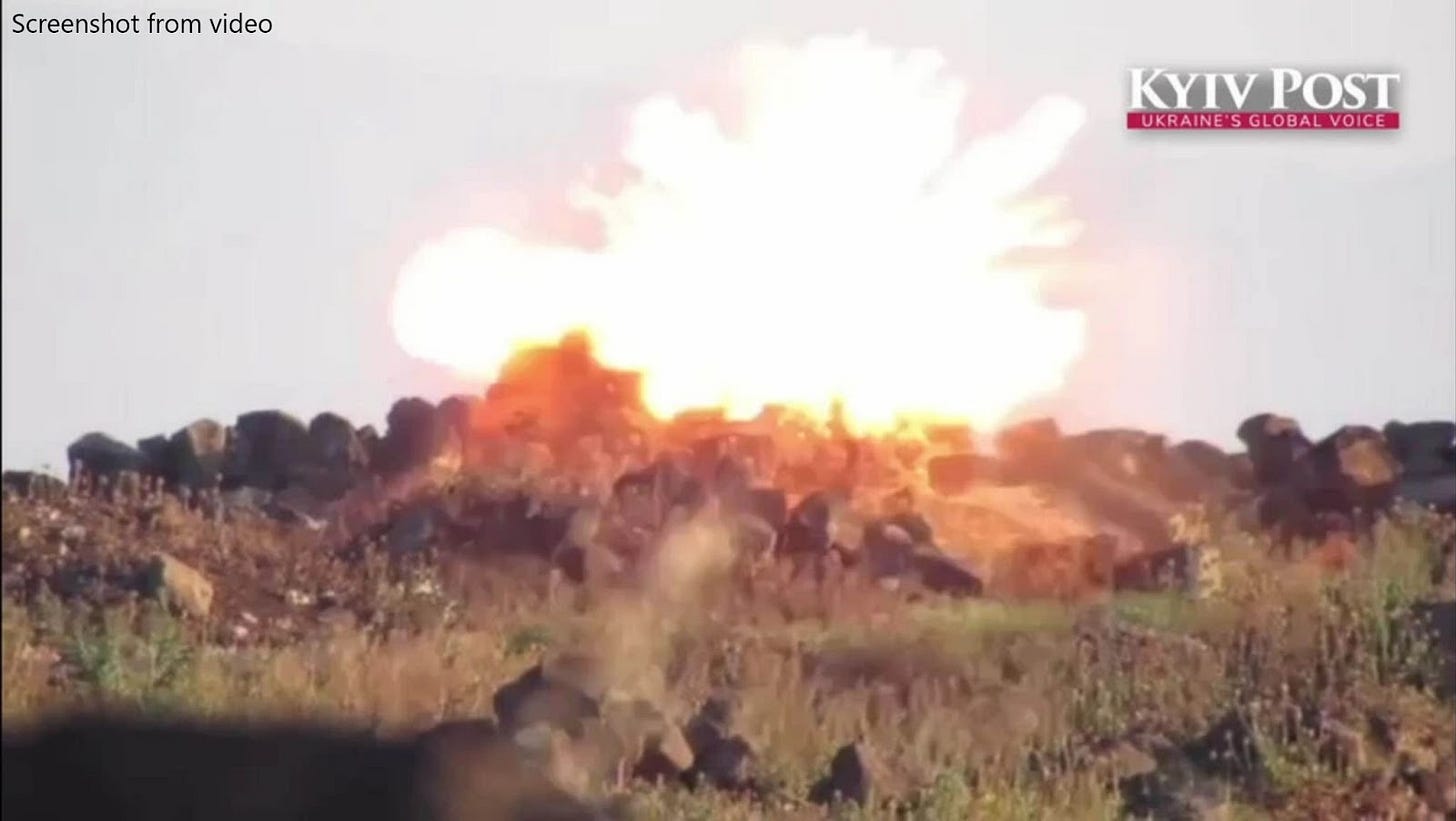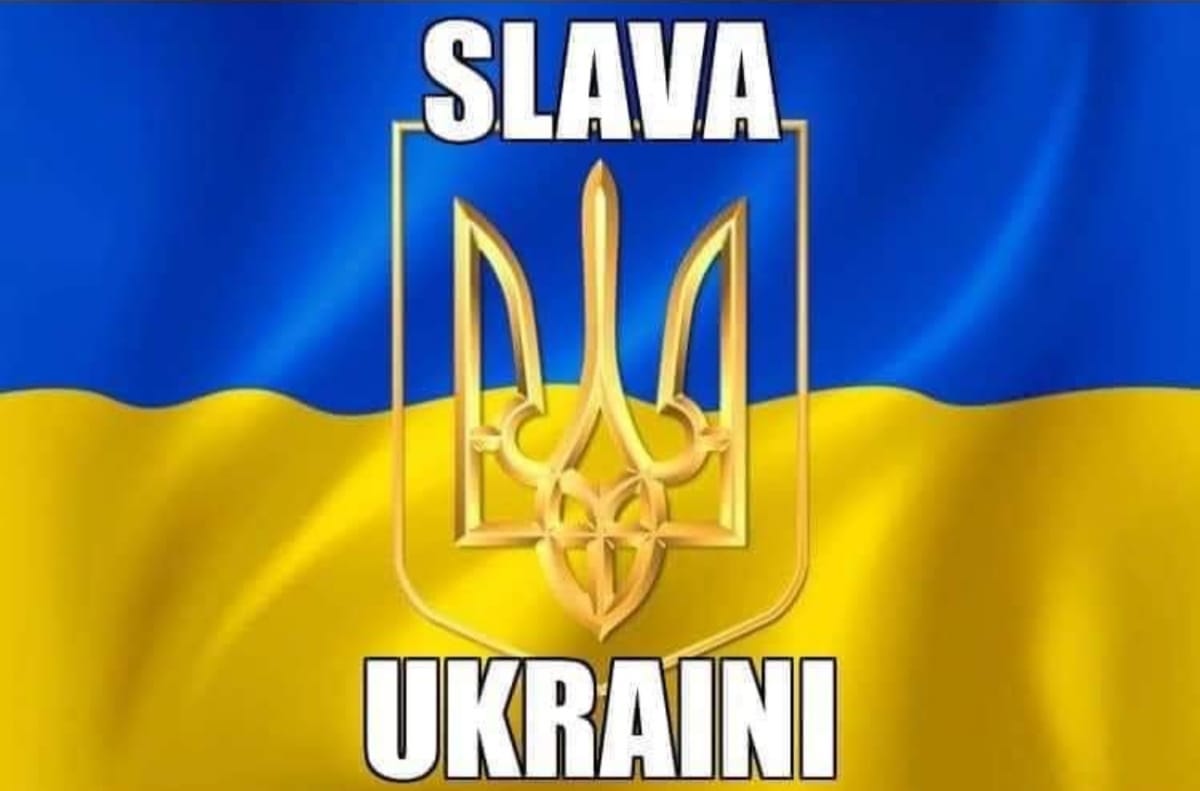Slava Ukraini! In early 2022 I began a Telegram channel aggregating news from a number of sources daily on the war in Ukraine. Since June 2023 I have provided a daily draft for the Ukraine War Brief Podcast collecting news from over 60 sources daily, much of which forms the basis of the script. While the Podcast is on hiatus I will make this Draft available here both on my own Substack and The People’s Media for those who wish to keep up with events on a daily basis.
ALONG THE CONTACT LINE
GSAFU Morning Report
The General Staff of the Armed Forces of Ukraine in its Operational Information update at 22:30 on Jun 3 stated that day 834 of the full-scale invasion of the Russian Federation against Ukraine was about to begin.
During the past day, 60 combat engagements took place. Over the past 24 hours, the enemy carried out 2 missile strikes, 33 air strikes, 351 drone strikes and 2,500 shellings across the positions of our troops.
At the same time, Ukrainian soldiers continue to inflict losses in manpower and equipment on the occupying troops, exhausting the enemy along the entire front line and continue to disrupt the plans of Russian occupiers to advance deep into the territory of Ukraine.
Air Force and Missile and Artillery units have since earlier this day targeted 18 personnel focus areas, two control points, three artillery systems, two PPOs and an occupant radio-electronic combat station.
The Khortytsia operational-strategic group
(Responsible for the northeastern part of Ukraine. )
Kharkiv axis: Over the last day Russian invaders conducted 2 unsuccessful assaults in the vicinity of Lyptsi and Starytsia.The situation is under control
Kupyansk axis: There were six combat engagements in this area, all were repelled
Lyman axis: Russia tried 4 times to advance in the vicinity of Terny and the Serebryanskyy Forest. Three attacks were repelled is ongoing near Terny
Siversk axis: Throughout the day Ukrainian defenders repelled 7 Russian assaults in the vicinity of Viimka and Rozdolivka. The situation remains tense.
Kramatorsk axis: Throughout the day Ukrainian defenders repelled 7 Russian assaults in the vicinity of Kalynivka, Klishchiivka and Andriivka
The Tavria operational-strategic group
(Responsible for the central-eastern and southeastern part of Ukraine.)
Pokrovsk axis: Ukrainian forces repelled 17 Russian assaults concentrated in the vicinity of Novooleksandrívka and Sokil
Kurakhove axis: 6 combat engagements occurred in this area 5 were successfully fought off, one continues in the area of Krasnohorivka.
Vremika axis: Ukrainian defenders repelled 3 Russian attacks in the vicinity of Staromairoske
Orikhiv axis: Russian forces made 1 unsuccessful attempt to assault in the direction of Mala Tokmachka. The situation is under control.
The Odesa operational-strategic group
(Responsible for Kherson, Qırım, (also known as Crimea) and the Black Sea.)
Prydniprovsk axis: Russian forces assaulted Ukrainian defences on the left bank of the Dnipro in the vicinity of Krynky 5 times over the previous day, with air support. All attacks were repelled.
TEMPORARILY OCCUPIED TERRITORIES
Nothing to report.
THE HOME FRONT
WSJ: Russia seeks to make life in Kharkiv impossible
An article published in the June 2 edition of the Wall Street Journal stated that although the danger of a rapid advance by Russian troops on the city has receded, Ukrainian and Western officials say Moscow appears to be planning a grinding war of attrition to empty it of its population by making life there untenable.
The Kremlin has long coveted Kharkiv, which was once the capital of Soviet Ukraine. Moscow tried to foment a revolt in the predominantly Russian-speaking city in 2014 and reached its outskirts in 2022, in the early days of its full-blown invasion, before being pushed back by Ukrainian forces. Now, with the war in its third year, Russia is targeting Kharkiv’s energy infrastructure and battering the city with missiles and guided bombs while trying to push its artillery back in range.
The Kremlin could be planning to replicate the strategy it used against Aleppo, Syria, in 2016, when the Russian air force—supporting the Syrian government in its civil war—destroyed electricity and water supplies and bombed hospitals and schools, said the secretary of Ukraine’s National Security and Defense Council, Oleksandr Lytvynenko. The population of Aleppo fell to one-third of its prewar levels before the Assad regime retook the city from opposition forces.
In the past week alone, Russian missiles and guided bombs have targeted a printing house and a home-improvement store, killing more than 25 people. City authorities say there is no need to evacuate, but have advised residents not to ignore air-raid alerts, and to avoid public places. Billboards along the city’s freshly swept streets proclaim Kharkiv unbreakable.
But the growing danger has already prompted some parents with young children to leave, including some who came back to Kharkiv after Ukrainian forces routed Russia from the region in the fall of 2022. Those who remain face the growing dangers with an attitude somewhere between defiance and fatalism.
RUSSIAN WORLD
Russian legal foundation linked to propaganda activities in Europe
Leaked internal documents have exposed the activities of a Russian state-backed legal defence foundation that European intelligence agencies and analysts say is in fact a Kremlin influence operation active in 48 countries across Europe and around the world. The Guardian reports.
Internal documents from the Fund for Support and Protection of the Rights of Compatriots Living Abroad (Pravfond) indicate that the foundation finances propaganda websites targeted at Europeans, helped pay for the legal defence of the convicted arms trafficker Viktor Bout and the assassin Vadim Krasikov, and has employed a number of former intelligence officers as the directors of its operations in European countries.
Pravfond was founded in 2012 by presidential decree and was backed by the Russian ministry of foreign affairs and the federal agency Rossotrudnichestvo, which administers foreign aid and has been described by the head of Pravfond, Alexander Udaltsov, as a “unique element of Russian soft power”.
Le Monde in an article on June 2 went even further referring to Pravfond as a “discreet slush fund for Russian spies”
The documents show that the group has spent millions of euros to finance propaganda and legal campaigns. Public data also shows that Pravfond’s local partners have received millions in state subsidies from a number of the European states where the foundation operates local branches, raising questions about the use of public funds and national security concerns just days before elections to the European parliament.
More than 40 Pravfond documents, obtained by the Danish public broadcaster DR from a European intelligence source and shared with a consortium of European journalists including the Guardian, show that the organisation has had a number of documented former intelligence agents among its leadership.
The head of the Institute of the Russian Diaspora, which is listed on official documents as Pravfond’s “project implementer”, is Sergey Panteleyev, who has been subject to sanctions in EU countries as a member of a Russian military intelligence unit that specialises in psychological-warfare operations.
Oil refinery on fire in Russia, fatalities reported – photo
A fire broke out at a Lukoil company’s refinery in Komi Republic, Russian Federation; several people have been killed. The fire started at an enterprise in the city of Ukhta. Russian propaganda outlet TASS reports.
Many Russian media outlets report that two people were killed. Officially, the authorities admitted that "there are dead and injured," but did not provide specific numbers.
Baza said that "a few explosions" were heard in the tank near the refinery prior to the fire.
NEWS WORLDWIDE
Germany says Ukraine can strike Russia with Patriots to protect Kharkiv Oblast
A German general says Ukraine’s German-supplied Patriot batteries can engage targets inside Russia from Kharkiv Oblast while defending the region, in an interview with Tagesschau.
” “It is quite conceivable that the ‘Patriot’ systems could now also be used in the Kharkiv area and over Russia. They are ideally suited to combat the Russian aircraft that can deploy the terrible gliding bombs,” said Maj-Gen Freuding, head of Germany’s Ukraine military situational center.
Germany’s recent limited permission allows Ukraine to potentially target Russian airspace with German-supplied Patriot air defense systems, as stated by Major General Christian Freudig.
This policy change specifically supports Ukraine’s defense of Kharkiv Oblast, suffering from Russian aerial strikes across the border every day.
Freuding emphasized that the tactical use of the systems would be solely up to the Ukrainian military, but said,
“We have great confidence that the Ukrainians will not only adhere to international law, but that they will also use them with great tactical skill and achieve success.”
Lack of clarity from US on use of weapons misses an opportunity to deter Russian offensive efforts.
US think tank The Institute for the Study of War (ISW) in its June 1 Russian Offensive Campaign Assessment stated that The current lack of clarity about US restrictions on Ukraine's use of US-provided weapons to strike military targets in Russian territory misses an opportunity to deter further Russian offensive efforts across the border into northern Ukraine.
US National Security Council Director for Europe Michael Carpenter told the Voice of America in an interview published on May 31 that the US policy allowing Ukrainian forces to strike certain Russian military targets in Russia "applies to counter-fire capabilities that are deployed just across the [Ukrainian] border [into Russia]" and "is meant to enable Ukrainians to defend themselves against what would otherwise be a Russian sanctuary across the border."
Responding to a question about whether this policy permits Ukrainian strikes with US-provided weapons across the border from Sumy Oblast, Carpenter responded vaguely "yes, across the border for Russian attacks that are coming across, where otherwise Russians would enjoy a relative sanctuary." Politico reported on May 31 citing two people close to the Ukrainian presidential administration that Ukrainian officials are frustrated that Ukrainian forces are "restricted to the border area in Kharkiv [Oblast]" when using US-provided weapons to strike Russian territory, however.
Carpenter's comments and the Politico report together suggest there is ambiguity on what the US has explicitly authorized regarding these strikes amid signaling that the US is open to expanding these authorizations to other areas in Ukraine should Russian forces launch offensive operations elsewhere along the international border area.
This US ambiguity misses an opportunity to deter Russian preparations for offensive operations elsewhere across the border into northern Ukraine. Ukrainian officials have recently warned that Russian forces are also concentrating forces in Kursk and Bryansk oblasts across the border from Sumy Oblast, and ISW has previously assessed that even a limited grouping would achieve its desired effect of drawing and fixing Ukrainian forces to this area.
The Kremlin may decide to launch offensive operations in different Ukrainian border oblasts outside of Kharkiv Oblast if it believes it can continue to mass forces across the border without risk of Ukrainian strikes. Ukrainian forces would be forced to defend against such offensive operations before the US grants explicit authorization necessary for cross-border strikes outside of areas bordering Kharkiv Oblast. The increased likelihood of other Russian offensive operations in northern Ukraine would require Ukrainian forces to reallocate existing resources to deter or defend against the offensive operations, creating opportunities for Russian forces elsewhere in the theater to exploit.
US clarity that Ukraine can use US-provided weapons against Russian ground forces concentrations in Russia that appear to be preparing for imminent cross-border operations would likely change Russian commanders' calculations about the wisdom of making such ostentatious preparations. ISW continues to assess that the US should allow Ukraine to strike all legitimate military targets in Russia’s operational and deep rear with US-provided weapons.
Belgium's EU presidency calls for Hungary's voting rights in EU to be revoked
Belgium, which currently holds the rotating presidency of the EU Council, is urging EU governments to consider starting a procedure to deprive Hungary, which takes over the presidency next month, of its voting rights.
Belgian Foreign Minister Hadja Lahbib in an interview with Politico, called for a no-confidence motion against Budapest under Article 7 of the EU Treaty, an extreme step that could lead to the suspension of the country's voting rights in the EU.
"We have a Europe that is making difficult headway, with unfortunately some states — one state in particular — increasingly adopting a transactional, blocking and veto attitude," the foreign minister said.
"I think we need to have the courage to make decisions: go right to the end of Article 7, activate Article 7 right to the end, which provides for the end of the right of veto," the minister added.
The European Parliament launched the first stage of the Article 7 procedure against Hungary in 2018, but the process reached a deadlock.
The next stage of this procedure is often referred to as the "nuclear option", as it involves the most severe political sanction the EU can impose on a member state - the suspension of voting rights in EU decision-making.
Hungary is set to take over the EU Council presidency in July, giving Budapest more power to set the agenda and priorities for the six-month period, even though Hungarian Prime Minister Viktor Orbán continues to obstruct EU decisions on critical issues.
"This is a moment of truth. Either we face up to our responsibilities, which requires political courage and willpower. Or we put in place mechanisms that don’t work. And so we have to choose," Lahbib said.
After Brussels dropped a similar case against Poland last month, Hungary is the only EU country facing this type of sanction.
Ukrainian Special Forces and Syrian Rebels Decimate Russian Mercenaries in Syria
An exclusive video obtained by Kyiv Post shows Ukrainian HUR special forces attacking enemy checkpoints, strongholds, foot patrols, and convoys of military equipment in the Golan Heights of Syria.
Exclusive videos obtained by Kyiv Post from sources within Ukraine’s Military Intelligence Directorate (HUR) show Ukrainian special forces and Syrian rebels destroying Russian mercenaries in Syria. The video is dated March 2024.
The HUR special squad “Khimik,” in collaboration with the Syrian opposition, is attacking Russian mercenaries fighting alongside the Bashar al-Assad regime in Syria.
Active combat is ongoing in the southern part of the country, particularly in the Golan Heights, where Russian forces are currently concentrated.
According to a Kyiv Post source in HUR, since the beginning of the year, the rebels, supported by Ukrainian operatives, have inflicted numerous strikes on Russian military facilities represented in the region by the so-called “grouping of forces of the Armed Forces of the Russian Federation in the Syrian Arab Republic.”
The source, who spoke to Kyiv Post on condition of anonymity, stated that constant attacks are being carried out on enemy checkpoints, strongholds, foot patrols, military vehicle columns, and other targets.
These attacks include the use of rocket-propelled grenades and improvised “Tarab” mortars to attack defensive positions and what appears to be command wire or radio-controlled improvised explosive devices (IEDs) attack vehicles, including a minibus travelling at high speed along a main road, as well as enemy foot patrols.
MILITARY & TECH
Nothing to report.
That’s it for today’s Draft folks if you would like to keep up with events in Ukraine daily please consider subscribing, its free!
Feel free to share this update with your friends. Heroyam Slava!









